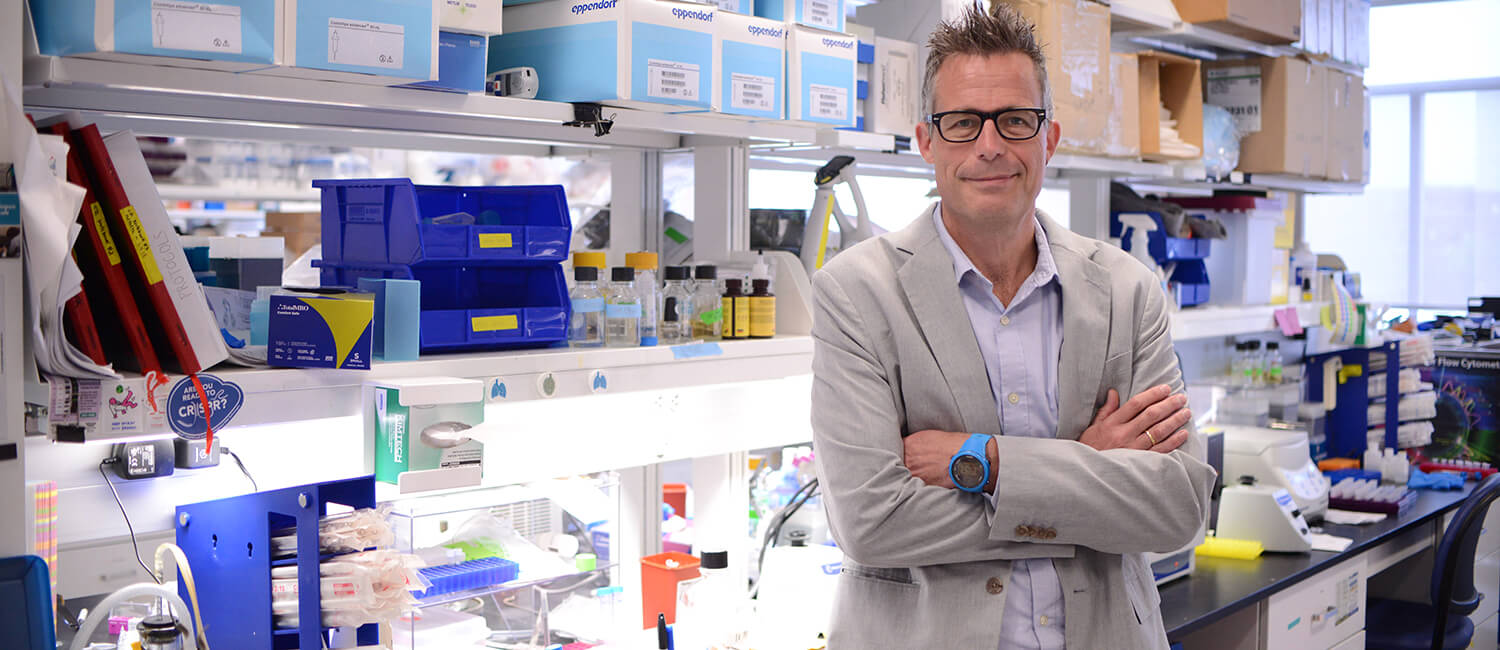 Boris Striepen, Professor of Pathobiology, in his lab.
Boris Striepen, Professor of Pathobiology, in his lab.
Diarrheal diseases are responsible for ten percent of all mortality in children under age five worldwide. Even milder forms of intestinal infection have a long-lasting impact on the nutritional state, disease susceptibility, and growth of children. These relationships are complex and the underlying mechanisms are not fully understood.
Significant advances have been made in protecting children from some of the infections through vaccination. Targeting emerging challenges, such as the protozoan parasite Cryptosporidium, is at the forefront of this effort.
In March, Penn Vet and Perelman School of Medicine at the University of Pennsylvania hosted the Intestinal Infection and Immunity Symposium to explore how recent scientific advances in microbiology, immunology, and medicine can be used to understand and ultimately solve this important global problem.
Jointly sponsored by Penn Vet’s Department of Pathobiology and Center for Host-Microbial Interactions and Perelman School of Medicine’s Institute for Translational Medicine and Therapeutics, Center for Global Health, and Institute for Immunology, the half-day event featured Penn Vet’s Dr. Boris Striepen, Professor, Department of Pathobiology, and other leaders in the field from the National Institutes of Health, University of Virginia School of Medicine, Children’s Hospital of Philadelphia, and Perelman School of Medicine.
The event was part of the University’s ongoing efforts in support of the One Health Initiative, which is dedicated to improving the lives of all species through the integration of human medicine, veterinary medicine, and environmental science.